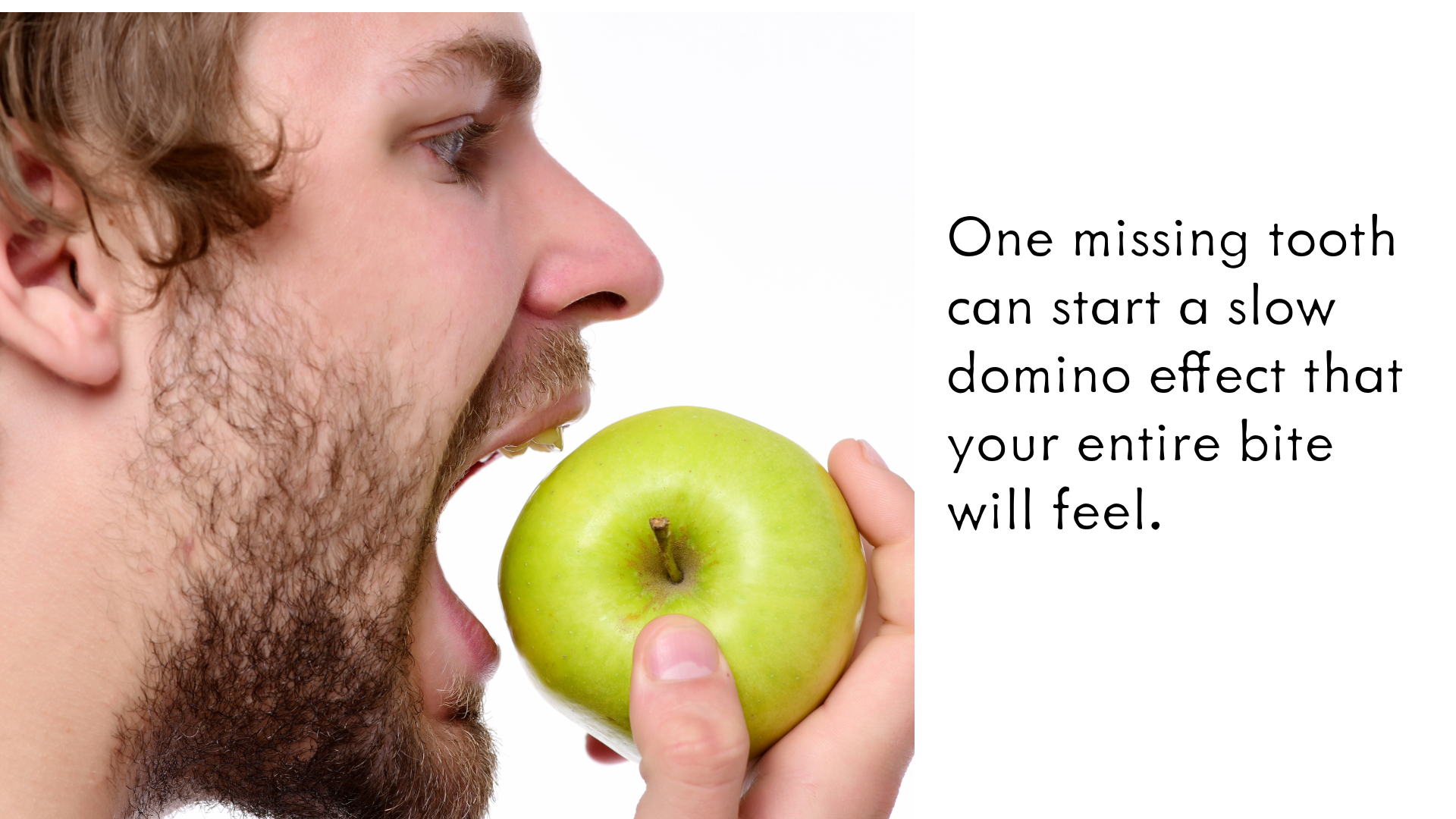Do You Need Dental Implants? 9 Key Signs
When our teeth are properly aligned and healthy, we can smile confidently, chew comfortably, and speak clearly. However, in cases where one or more teeth are missing, these everyday functions can become challenging. This raises an important question: When is a dental implant necessary? In which situations should implant treatment be considered? Let's explore the key indications together.

1. Chewing and Nutrition Problems
Missing teeth have a direct impact on chewing. Loss of back teeth in particular makes it difficult to chew hard and fibrous foods. Inadequate chewing causes food to go into the stomach without being broken down into small enough pieces. This can

- Trigger stomach disorders such as gastritis and reflux.
- Cause gas, bloating and indigestion problems in the intestines.
- The risk of malabsorption (inadequate absorption of nutrients in the intestine) is increased, especially in the elderly, because large pieces of food strain the digestive system.
People who are missing teeth should generally stay away from nutrient-dense foods like meat, raw veggies, and hard fruits. Protein, vitamin (particularly B12, C, and D), and mineral (iron, zinc, calcium) deficits develop over time as a result of this. A study conducted in 2012 found that among the elderly, those with less than 20 natural teeth had a 21.3% risk of malnutrition, whereas the group with teeth had no such risk.
2. Aesthetics and Loss of Self-Confidence

When teeth in the front are missing, it shows in the grin. But when teeth in the back are lost, it can make the face look older. The person may experience a decline in self-assurance as a result of these changes. Aesthetic restorations backed by implants, on the other hand, can help you feel better about yourself by looking natural and restored to perfection.
3. Tooth Shifts and Jaw Problems
Bite problems develop when spaces between teeth allow the teeth around them to shift. The temporomandibular joint (TMJ) issues may ensue. Dental implants can quickly and effectively fill these spaces, safeguarding the alignment of teeth and warding off any jaw issues.
When you do not have dental implants in time, the upper tooth begins to sag over time towards the empty area in the lower jaw. Conversely, problems with chewing and an increased strain on the jaw joint are consequences of this sagging, which causes the lower and upper teeth to stop fully closing. However, if an implant is placed in time after tooth extraction, this gap is filled, and tooth shifts and jaw problems can be prevented.
4. Jaw Bone Resorption
Porousness is more prevalent in the lower jaw and posterior areas of the jawbone. Because it is no longer needed, the jawbone in the region around a tooth extraction starts to erode over time. Aesthetic issues and an unnaturally aged appearance are brought about by the jawbone melting.

Within a year following tooth loss, clinical trials reveal that 50% of alveolar bone can have been lost. Over the long run, there is an extra 0.5-1% annual rate of bone resorption. By applying stress to the bone while chewing, the implant promotes bone turnover and slows down resorption. A study conducted in 2016 analyzed 18 separate scientific articles and found that restorations supported by implants help to preserve bone. (1)
5. Broken or Cracked Teeth
A tooth may be irreparably damaged if the crack is too deep or too big to be repaired. It may be necessary to extract the tooth and then implant a new one in such a circumstance. Implant implantation allows for faster correction of shortage following immediate extraction of the fractured tooth (with sufficient bone). As a result, the patient experiences a rapid recovery of chewing function and the treatment duration is reduced.
6. Prosthesis Compliance Problems
When you chew with loose or misaligned dentures, you run the risk of developing ulcers and other uncomfortable oral areas. Denture adhesive sensitivity, diminished taste, and inability to feel warmth are some of the common complaints.
Because they keep the patient's prosthesis in place and the bone support intact, implant-supported dentures provide several practical and comfort advantages. Patients' dental health-related quality of life is significantly improved after treatment with two implant overdentures in the mandible, according to studies.(2). Thus, the implant proves to be an everlasting fix for prosthetics that have fit issues.
8. Speech Problems
To be more specific, sounds like "s, z, f, v" can be more challenging to enunciate properly when front teeth are absent. Issues with social communication may arise as a result of this. Patients benefit from improved comfort and clarity of speech when using implant-supported fixed prosthesis. It may be time for a dental implant if you're having trouble speaking clearly because of tooth loss.
9. Cleaning Sources of Infection
When left untreated, dental abscesses caused by cavities or unfilled root canals can quickly spread to other parts of the body. The infection can spread to neighboring tissues, sinuses, or the bloodstream if the abscess is not emptied. This can lead to a septic picture and sepsis. Serious infections in the neck cavities and the craniofacial area can be fatal.
Another factor that contributes to an elevated bacterial focus in the mouth is chronic gum disease, also known as periodontitis. Occasionally, these bacteria can make it into the bloodstream, which can lead to inflammation throughout the body. There are no hard numbers, although some research has linked periodontal disease to diabetes and cardiovascular disease. Plaque buildup on teeth is the direct cause of half of the 300,000 annual heart attacks in the US. The specific numbers are not provided numerically here since they are not part of the text.
By removing the diseased tooth, we can eradicate the source of inflammation, also known as the odontogenic focus. Following the placement of the implant-supported repair, the extraction site is cleansed and the space left by the missing tooth is filled. Because of this, the patient's dental health is safeguarded and the likelihood of further systemic consequences is diminished.
Conclusion:

In addition to improving one's smile, dental implants are a lifesaver when it comes to one's oral health, chewing power, voice, and overall quality of life. See a dentist to see if implant treatment is right for you if you're dealing with any of the issues listed above.
A tooth gap is more than simply an aesthetic concern; it can have far-reaching consequences for your dental health if left untreated.
Sources;
- Khalifa AK, Wada M, Ikebe K, Maeda Y. To what extent residual alveolar ridge can be preserved by implant? A systematic review. Int J Implant Dent. 2016 Dec;2(1):22. doi: 10.1186/s40729-016-0057-z. Epub 2016 Nov 23. PMID: 27878769; PMCID: PMC5120622.
- Geckili O, Bilhan H, Bilgin T. Impact of mandibular two-implant retained overdentures on life quality in a group of elderly Turkish edentulous patients. Arch Gerontol Geriatr. 2011 Sep-Oct;53(2):233-6. doi: 10.1016/j.archger.2010.11.027. Epub 2010 Dec 22. PMID: 21183231.
